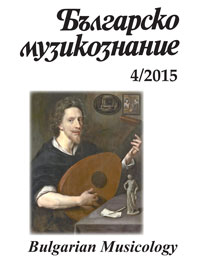
We kindly inform you that, as long as the subject affiliation of our 300.000+ articles is in progress, you might get unsufficient or no results on your third level or second level search. In this case, please broaden your search criteria.

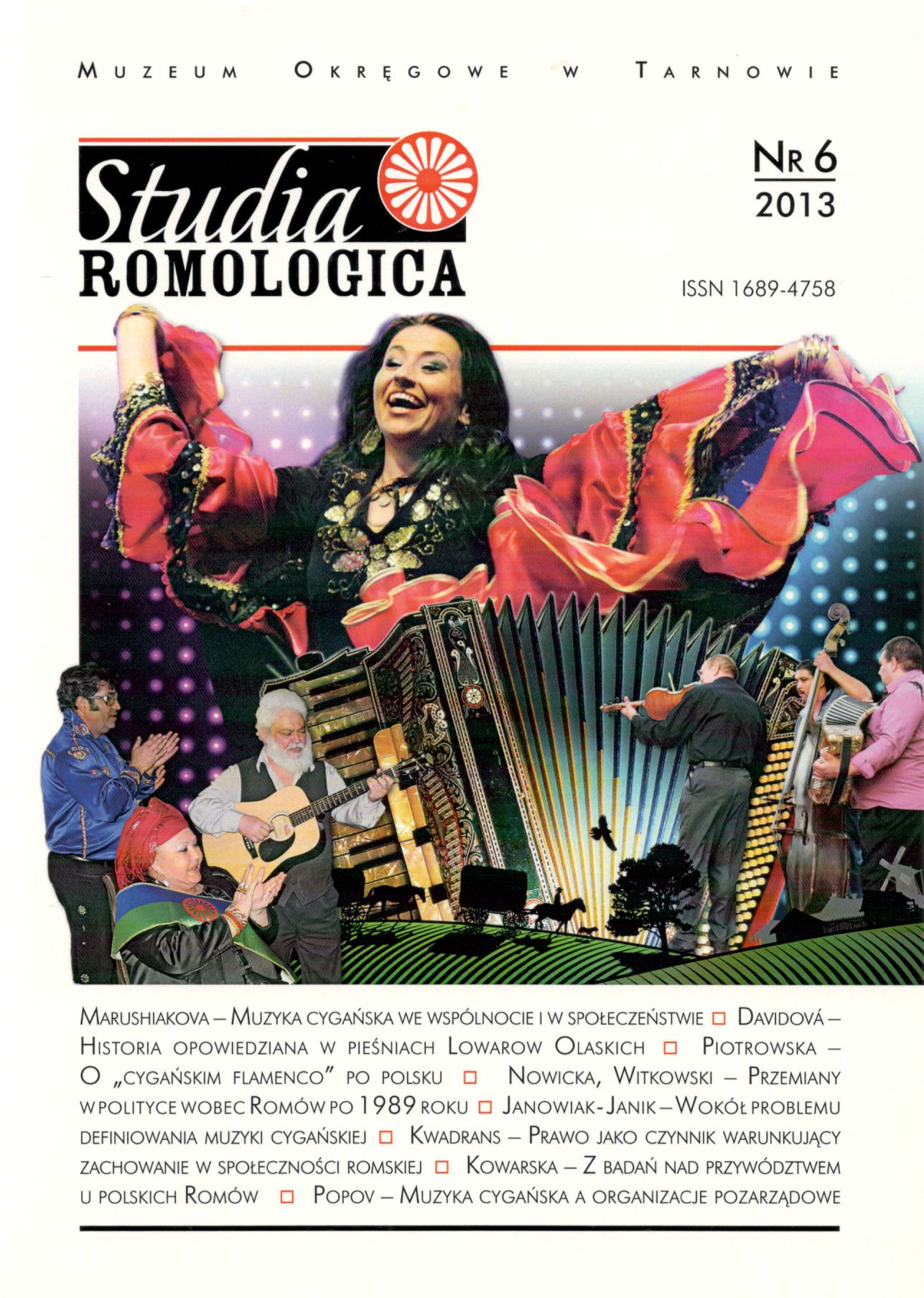
The article attempts at pointing out the selected aspects of discussions held in the relevant literature on the concept of Gypsy music. Although for centuries it has been admired and appreciated, its phenomenon has not been yet exhaustively defined. A wide range of repertoire and musical styles that have been exposed to various in¬fluences and practiced by different Gypsy groups determines that there is no shared idiom of Gypsy music. Like the ethnic identity of Gypsies, Gypsy music is not something unchangeable and homogeneous. It is a dynamic entity that is created and performed in ever-changing conditions and situations. That is why the designation of Gypsy music depends on the broader context in which it functions. The criteria for the recognition of music as Gypsy are much differentiated, as is the music itself. The origins of musical works, their features, language and content may be equally important as their aesthetics and market value.
More...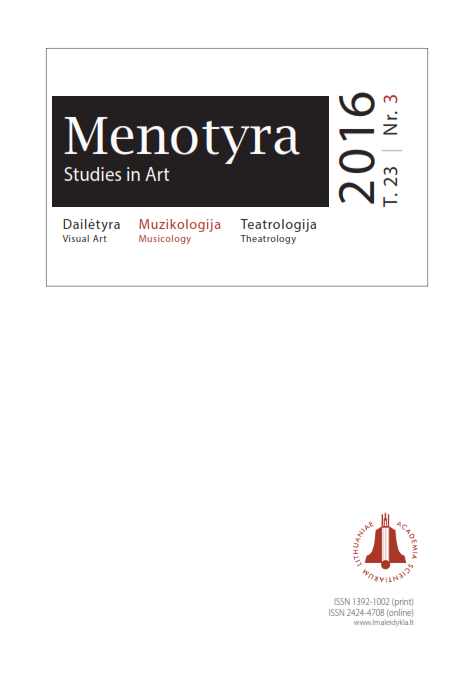
The operatic culture is inseparable from its social environment, and as such it implicates not only a musicological, but also sociological and anthropological approach.The operatic culture of interwar Lithuania (192038–1940) was a rather controversial phenomenon. In the middle of it stood the State Theatre of Kaunas (then, the capital of Lithuania) that was richly subsidized by the state. However, the critique – reviews in national dailies – particularly those dealing with the subject of national operas, indicated a certain tension or a conflict of interest concerning legitimation in the opera field between its agents.The case of the premiere of Jurgis Karnavičius’ opera “Gražina” (1933) – the first new Lithuanian opera staged in the independent Lithuania – is representative in this regard. A critic of a semiofficial newspaper of the day “Lietuvos aidas” (“Lithuanian Echo”), Vladas Jakubėnas, wrote in his review: “Our society’s desire to have a national opera was not totally fulfilled this time. As we know from the history of opera, such works get created only by those who descend from the core of the nation. <...> The spirit of Mr. Karnavičius’ music isn’t truly close to our folk tunes”.As we can see in this evaluation of the work, the criteria of the evaluation of the work – society’s desire to have a national opera that must be fulfilled and expectation that the spirit of the music must be truly Lithuanian – are not connected sensu stricto with the art itself, but with some extra-artistic expectations.To investigate the reasons of the rejection of Karnavičius’ “Gražina” as a truly Lithuanian opera one could invoke the concept of the social field defined by a French sociologist Pierre Bourdieu (1930–2002) and his definitions of habitus, cultural capital, illusio and others. By means of the Bourdieusque field we could maintain that Lithuanian operatic culture during the interwar period existed as a controversial interplay between at least two fields. The first one was an autonomous field of artistic (in our case, operatic) production, which – after Bourdieu – emerged by refusing or turning upside down the principle of material benefit. The second one is the field of political power that aimed at specific tasks (therefore negating the autonomy of art) and mani- fested through the critics’ reviews.The aim of the article is to discuss the main definitions of Bourdieu’s “field sociolog y” as a means for investigating the interwar Lithuanian operatic culture as a controversial social phenomenon.
More...
The starting point of this paper was influenced by E.T.A. Hoffmann’s Sandman (1816), which belongs to the dark romanticism period. In 1870, on the basis of this story, a very popular ballet called Coppelia was introduced to the ballet world. The creators decided to present its content in the form of a comedy ballet, focusing on the aspect of the love story.This classical version inspired many choreographers to create their own versions, including contemporary artist Maguy Marin. She introduced her own choreographic diagnosis of male-female relationships based on 20th-century life. This paper reflects on the interesting changes made through the use of dance towards Hoffmann’s text.
More...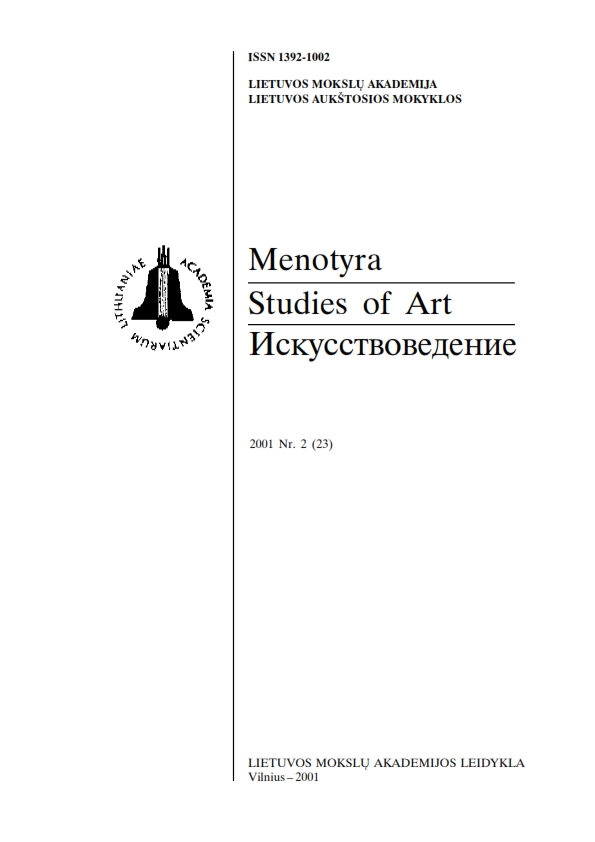
Although the issue of the makers of organ instruments of the Grand Duchy of Lithuania (GDL) was not separately covered in literature, their surnames are quite frequent there. The article aims to collect all the makers of organ instruments mentioned both in historiography and in historical sources. The surnames and brief descriptions of their lives and activity are provided at the end of the article (item 51). The article endeavours to indicate and highlight the issues supported by historical examples important for investigations, rather than generalize the information recorded by historical sources. Attention is drawn to the proliferation of organ instruments and organists as far back as the 16th century in GDL as well as the samples to show the sizes of organ instruments recorded in the 17th century. The separation of a maker of organ instruments from an organist dates back to the 16th century. The prices mentioned in historical sources of the 17-18th centuries and a great variety thereof, depending on the size and quality of an organ instrument, is a separate point in this article. Description of the makers of organ instruments of Vilnius also falls under a separate point, and a group of three Lutheran families (Zelle, Scheel and Jantzon) predominant not only in Vilnius is distinguished. The issues raised in the article can be expedient for further investigation both into the history of organ instruments and musical culture of GDL.
More...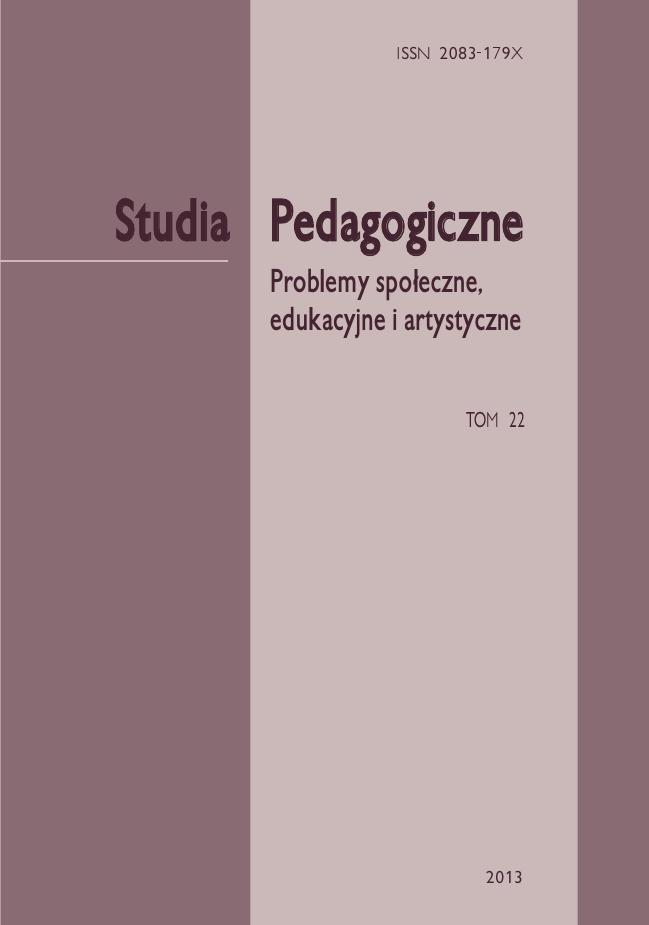
The intention of the author who believes that there are still too few Polish publications on a pedagogical repertoire in the area of pianism, is to familiarize the reader with the works covered by the title from the performance perspective and, in particular, in the pedagogical aspect. It presents the historical background of the creation of the mentioned didactic works by Johann Sebastian Bach as well as the most important characteristics of the baroque speech of sounds present in the short pieces analyzed and the guidelines for the performance of the works with modern piano. The author’s comments are also related to the pedagogical use of the Two-Part Inventions; he touches upon issues including appropriate selection and order of their presentation to students in different stages of the teaching process and in musical education as well as some of methodological aspects of work on them. The author does not aim to exhaust the subject as he assumes that the issues presented can be seen from another perspective as regards the performance details, and that playing the piano and other instruments should be always taught individually, taking into account the students personal traits and their abilities.
More...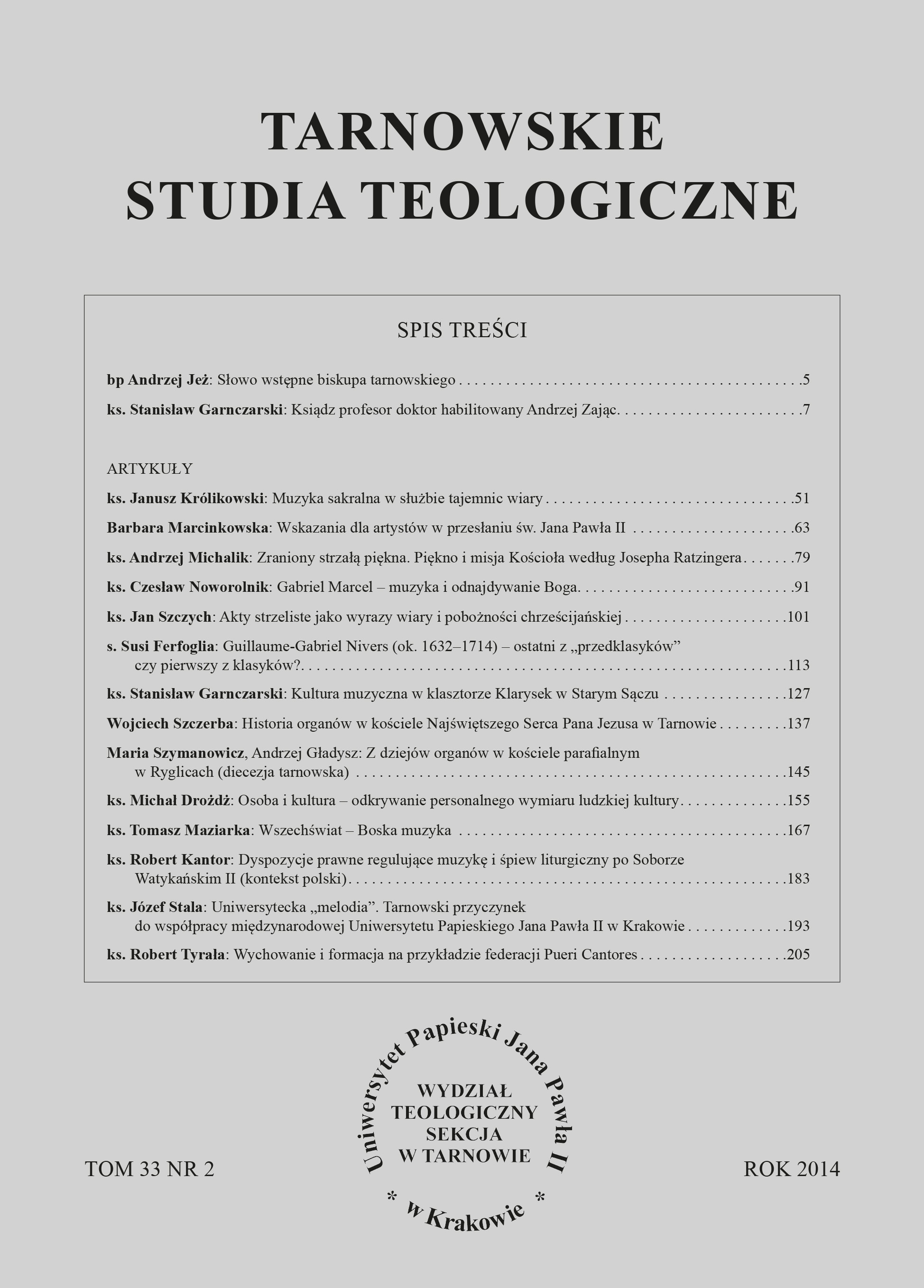
Big impact on the life of Church and on the public and cultural sphere has the formation of the new forms of religious life in Europe of the twelfth and thirteenth-century. So it was in Poland in the case of the monasteries of Poor Clares, especially Poor Clares in Stary Sacz which developed the rich musical life. Helpful in this regard were the structure of monastic life with various functions and ministries. Among them we find many serving liturgical music and not only and assigned to sisters of a special musical abilities. Moreover, sisters have led regular singing practice; learned new songs and even composed themselves. Inside the monastery acted religious band, for which the instruments were purchased; in a different period the monastic band functioned, employing also secular musicians, in addition to constantly employed organists. Sisters maintained also close contacts with the clergy who visiting the monastery brought ordered by Sisters liturgical books, among them a musical. In this way library of the monastery enriched by the book, which today are relics of the highest quality and sources of the specialized research on the culture of the monastery of Stary Sacz.
More...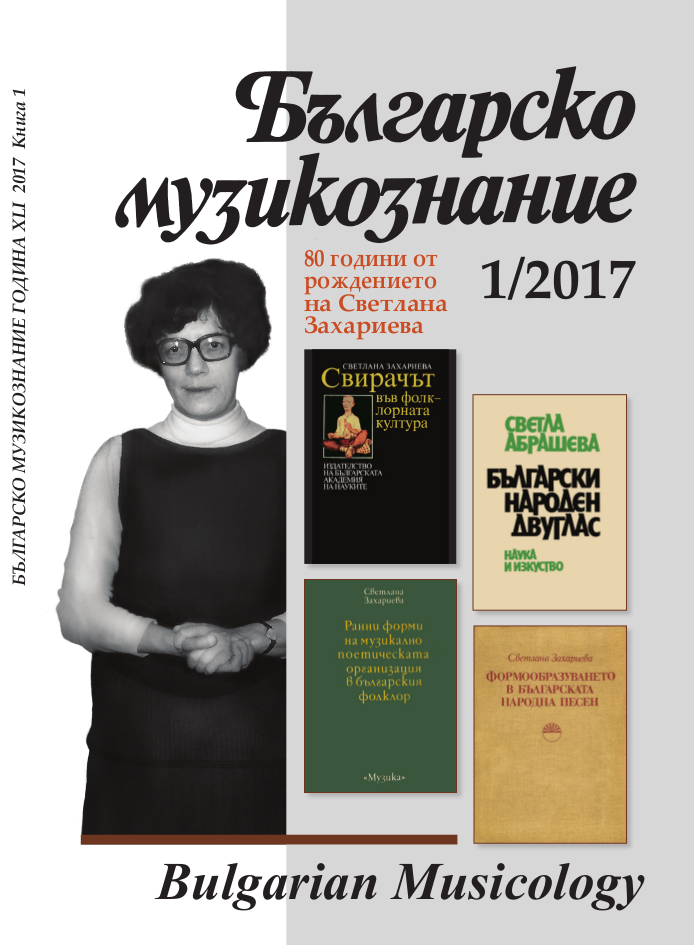
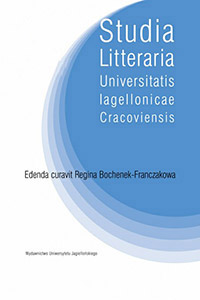
The paper deals with the opera The Bacchae from 1991, a collaboration between Swedish composer Daniel Börtz and Ingmar Bergman. It was one of the three operas Bergman ever directed. The paper examines The Bacchae in a broad context of modernist reception of Greek tragedy and mythology – an especially important frame of reference is the Dionysian, post-Wagnerian opera – and against the backdrop of Bergman’s other film and theatre productions that deal with his highly ambiguous relation to religion. Bergman incorporated some major themes of European Modernism in his staging. The Bacchae can be read as a part of the “invented tradition” of the black, antilogocentric, violent, obscene antiquity, created around 1900 as an opposition to the bright Winckelmann – inspired version of the past. This dark vision of the archaic roots of human culture corresponds with other modernist topics such as the crisis of language and the attempt to create alternative, body- based modes of expression, the blurring of gender identities, the transgressive nature of art and religion and the conception of music as a representation of the “oceanic” unconscious.
More...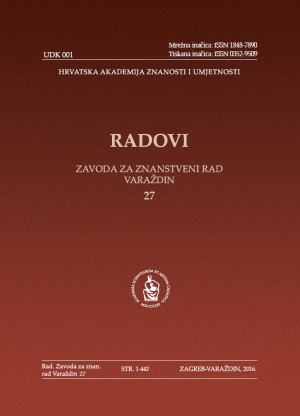
The forty five years of continuous tradition of the Varaždin Baroque Evenings music and performance festival is an expression of the desire of its founders to support and promote music to the audiences in Varaždin, its immediate surroundings and the north of Croatia, as well as in Europe and the world. Musical performances and the accompanying programmes introduced the audience to the history of Varaždin, its musical, architectural and artistic heritage, as well as the beauty of its nature and tourist destinations. When the festival, with its beautiful performance spaces, countless associates and an excellent reputation, started growing out of its local framework and gaining international recognition, it started to contribute to the promotion of art not only in the north of Croatia, but also on a wider European level as well. This was achieved by using the urban locations and the magnificent architectural heritage of the region as concert venues. Even more importantly, the artwork on the posters, invitations and records published by the festival also featured the cultural heritage of the region, which was the subject of research of the many participants of conferences and symposiums that were part of the festival’s accompanying programme. Also part of the accompanying programme were the numerous exhibitions which, just like the performances that took place in the castles of Hrvatsko zagorje, testified to the organizers’ attitude towards the preservation and renovation of national heritage sites. More recently, in addition to promoting the arts in Croatia, the festival has also been promoting the heritage of partner countries. This dedication to the promotion of artistic heritage is an expression of the sensibilities of those who have been the moving force behind the Varaždin Baroque Evenings in the past forty five years.
More...
During its “long term”, sevdalinka proved to be very flexible folklore creation,given the fact that it successfully resisted various social, cultural, political and other influences it has been exposed to. As one of the consequences of the accelerated development of information and communication technologies, at the end of the 20th and at the beginning of the 21st century, emerged a new medium, the Internet, through which sevdalinka today mostly finds its way to its audience. Because this medium is standing in a direct connection with the process of globalization, here we will try to examine sevdalinka from the angle of this complex sociocultural phenomenon. Special attention will be dedicated to sevdalinka as an “engaged” cultural heritage, that is “used” tradition,and besides the legal ones, there will be also taken into account the illegal means of this cultural consumerism, or more precisely, musical piracy. The paper argues that only those creations of culture that actively participate in the life of a certain community get their full sense; in other words, they are confirmed through this community, because they represent bearers of its historical memory, value system, identity, etc. This also applies to sevdalinka, which in the Internet environment gets far more opportunities for cultural “consumption”, not only by those who build their ethnic, national or cultural identity through it, but also by all other users of the worldwide network interested in this music genre. The aim of this work is to show how a local music tradition,depriving itself of by its own exclusivity, through the Internet, becomes a global cultural asset, giving itself greater chances to survive in contemporary conditions.
More...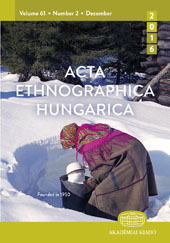
Zoltán Kodály collected in the Székely land, in Csík county (the districts of Gyergyó and Kászon) in 1910 and 1912, and in Bukovina in 1914. Fourty-one tunes (in 50 variants), folk hymns and songs used in religious folk customs and 2 tunes played on the flute in the Bukovinan Nativity play can be found among the 650 tunes he collected during these journeys. Among the 41 songs, 12 are related to Christmas, 1 to Lent, 1 to Easter, 10 are about the Virgin and Jesus, 10 are funeral laments, 2 are Saint Peter’s laments, 3 are about the Wedding at Cana and 2 are miscellaneous religious songs. Among the 530 intact phonograph cylinders Kodály recorded 75 come from Bukovina (8 of them containing religious songs) and 73 from Csík county (7 of them containing folk hymns). 7 phonograph recordings from Kodály’s folk hymn collection are available to anyone.
More...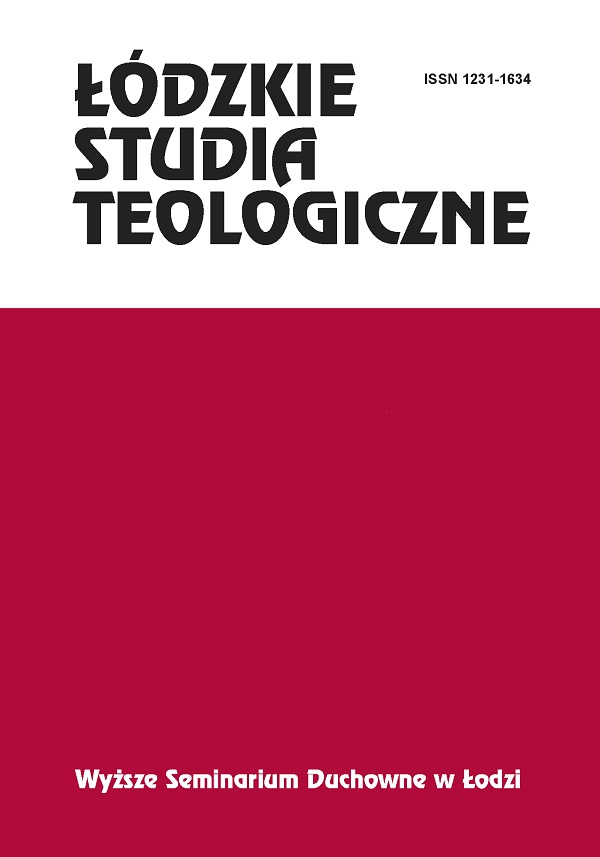
The analysis of the texts of the hymns includes the different means of addressing the Supreme Being, the apostrophes and the forms containing the divine attributes. There is also the means of defining the existential situation of man, of his environment, different forms of addressing himself to others, and his condition. Thanks to this analysis we found the differences between traditional and recent hymns.
More...
The article analyzes the Ukrainian Orthodox sacred music traditions, most mass religious movement state. The study is an attempt to observe and identify the main trends in the spiritual culture of the Ukrainian people at the turn of XX-XXI century.
More...
Ožujak, 2000. O nedavnim koncertima Ramba Amadeusa u Hrvatskoj možda ne bi trebalo pisati. Ne zato što koncerti to ne zaslužuju jer, riječ je, barem što se tiče zagrebačkih nastupa, o odličnim koncertima, već zato što su ipak neke druge stvari zasjenile koncerte te zato da se, nakon što je prvi jugoslavenski izvođač odradio gostovanje u Hrvatskoj, cijela priča pospremi u ladicu s natpisom normalna stvar. [...]
More...
Počev od 2009. godine u Ivanjici se svake godine krajem avgusta održava Nušićijada. Reč je o kolaž festivalu satkanom od muzičkih koncerata, pozorišnih predstava, sportskih događaja, performanasa, izložbi i filmskih projekcija, začinjen ceremonijama i paradom kostimiranih građana kao svojim zaštitnim znakom. Ona predstavlja spoj kulture i zabave, tradicionalnog i modernog, mladosti i iskustva, individualnog i kolektivnog. Poznato je da je Branislav Nušić bio odličan besednik i da je napisao jedan od najboljih priručnika za retoriku na srpskom jeziku Retorika – nauku o besedništvu. Imajući to u vidu u okviru Nušićijade u Ivanjici počev od 2012. godine organizuje se Besedničko veče: „NUŠIĆ I REČ“. Ono se sastoji iz dva dela. U prvom delu ugledna ličnost iz javnog života po pozivu govori „Besedu o Nušiću“ na temu o Branislavu Nušiću kao besedniku i teoretičaru retorike. U drugom delu „U slavu reči“, nastupaju revijalno najuspešniji takmičari u besedništvu u Srbiji u tekućoj godini. U ovoj rubrici Hereticusa objavljujemo besede dr Slaviše Orlovića, redovnog profesora Fakulteta političkih nauka Univerziteta u Beogradu i studenata Olivere Ševo, Stefana Dragićevića i Bojane Petrović, koje su održane 27. avgusta 2016. u Ivanjici. Na kraju je beseda dr Đorđa Sibinovića notarima Srbije. [...]
More...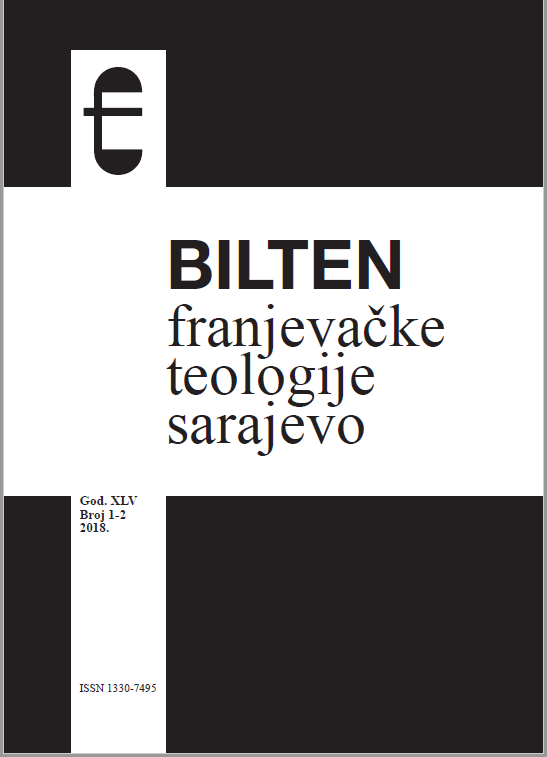
Proteklu akademsku godinu VIS Jukić započeo je nastupom u Bučićima 2. listopada 2017. gdje su framaši proslavljali primanja i obećanja, a istog dana Jukići su nastupili i u Gučoj Gori na slavljenju svete mise. Nekoliko dana nakon toga obilježen je najznačajniji dan naše visokoobrazovne ustanove, a to je spomendan blaženog Ivana Duns Skota, na kojem je bogoslovski bend odsvirao poznatu pjesmu „Uhapšen u svojoj magli‟.
More...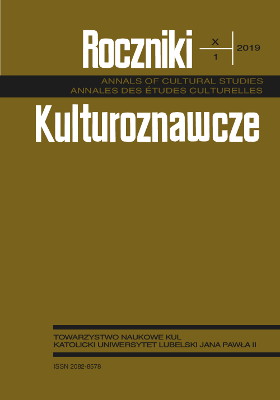
The search for mathematical relationships in musical compositions are often studied. There are many musical compositions, in which the composer consciously used mathematical knowledge during their composing. The search for mathematical dependence in music could be called “mathematization of music”. Can we use math to music illustration of mathematical objects? The problem of using music to math illustration is analyzed in this article and the aim of the article is to present some mathematical structures consciously used in the compositions by Iannis Xenakis. His work is an excellent example of the connection of mathematics with music. There are described stochastic processes and probability theory, group theory, game theory, and Brownian motion and Markov chains. Music of Xenakis opposed any tradition in music by using mathematical modeling in it. It was unpredictable, but not accidental. There is also about the creative process when composing music and about mathematical order in musical works, as well as aesthetic and artistic values. This article facilitates the perception of Xenakis music and enables to understand his work better.
More...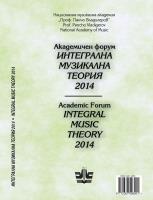
The interaction between classical and modern harmony is seen from a methodological aspect as a systematic and structural category, namely as a tone system that more or less destroys tonality, and from a historical aspect – the time when that happened, namely at the end of the nineteenth century and approximately by the end of the mid-twentieth century. During that period, we can find out a number 75 of ‘border’ examples representing the opposite poles between the so-called classical and modern harmony, where tonality can be perceived in an atonal environment and vice versa – it can be an environment in a context beyond its borders in the works of composers as Brahms, Wagner, Wolf, Bruckner, Mahler, Reger, Strauss, Schönberg, Berg, Webern, Debussy, Bartok, Shostakovich. We can find such occurrences earlier by composers such as Mozart, Beethoven and Schubert. Such a process is technologically and structurally implemented mostly in chromaticism, which should be seen simultaneously, not separately, in the two types of harmony. Such an approach is suggested by the author as a new aspect in the teaching methods of the subject of Harmony in Bulgaria.
More...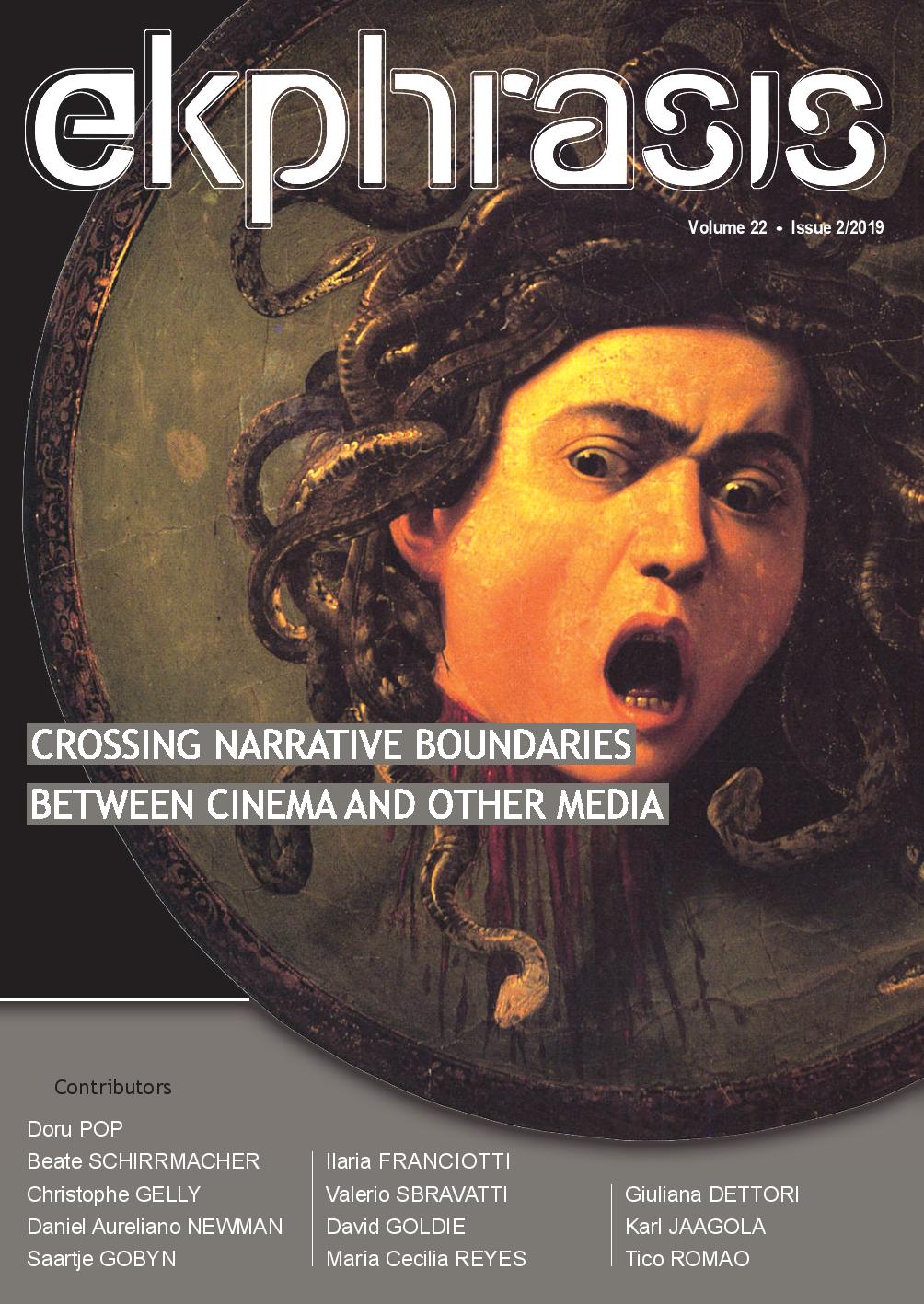
This article explores the relationship between violence and art music in Anthony Burgess’s A Clockwork Orange and Stanley Kubrick’s film adaptation. Instead of focusing on differences between novel and film, the intermedial perspective of this study is on underlying similarities beyond the different media characteristics of film and literature. Both the novel and the film exploit how the somatic impact of music creates a fundamentally ambiguous relationship between violence and music. Musical choices in the novel and the film at first glance appear incongruous. However, an intermedial approach reveals a connection between the textual and audiovisual ambiguity, unknown fictive music described in the novel and the well-known music played in the film, defamiliarised lyrics and distorted sound. Thus, the novel and the film not only present the inherent violent potential of music; both works also exploit the attitudinal ambivalence created by the contiguity of music and violence. Music in violent contexts, which at first appears to distance us from violence seen, in fact pushes us towards the experience of felt ambivalence that undermines the order of things.
More...